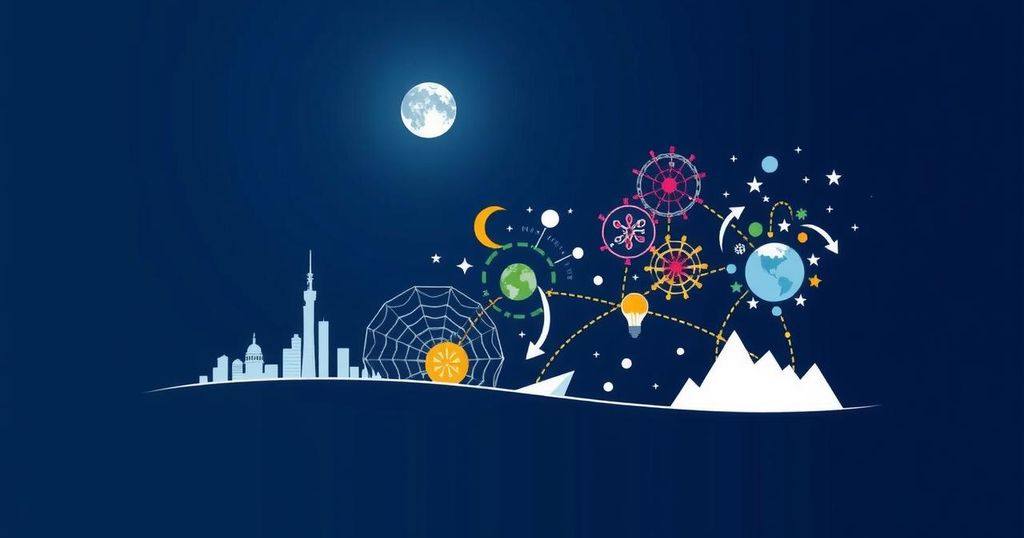UConn Students Participate in Global Climate Change Conference COP29

UConn student fellows attended COP29 in Baku, Azerbaijan, for discussions on the climate crisis. Many attendees prepared extensively for their roles, confronting corporate greenwashing and learning about international negotiations. The event highlighted the voices of vulnerable nations and culminated in a People’s Plenary that addressed the effects of conflict on climate issues. Students will share their experiences at a Climate Change Café on December 4.
Fourteen student fellows from the University of Connecticut recently attended the 29th United Nations Climate Change Conference (COP29) held in Baku, Azerbaijan, sponsored by the Office of Sustainability. This initiative, ongoing since COP21 in 2015, allows UConn’s students and faculty to engage in discussions aimed at addressing the global climate crisis. Many of these students participated for the first time and approached this experience with diverse preparations.
Dylan Steer, a senior studying environmental studies and political science, expressed his enthusiasm about his acceptance to the summit after previous unsuccessful attempts. He prepared himself through conversations with past attendees to familiarize himself with the conference’s atmosphere and the vibrant energy surrounding climate advocacy. Similarly, Kamala Chuss, a senior majoring in marine sciences, highlighted her lifelong dedication to conservation as foundational to her participation.
Alan Cavagnaro, a senior focusing on political science, pointed out how dissenting voices at COP were subjected to rigorous scrutiny, citing an email from authorities indicating that protestors needed prior registration. He reflected on Baku’s transformation from an oil-dependent region to its current positioning, suggesting constraints on free expression during the conference.
The conference spanned two weeks, with the initial days reserved for official parties of the UN. Upon their arrival during the second week, the UConn group engaged with negotiations at the Blue Zone, while also navigating the Green Zone’s corporate sustainability showcases. Cavagnaro contrasted the two areas, sharing a preference for the informative Blue Zone over the comparatively dispiriting Green Zone, characterized by corporate greenwashing.
Steer criticized such greenwashing, noting companies like SOCAR deceptive environmental messaging while contributing to ecological degradation in the region. In contrast, Chuss appreciated the Blue Zone’s educational opportunities, particularly highlighting meaningful connections and insights into international negotiations and scientific engagement in climate action.
Cavagnaro recounted impactful discussions, notably a poignant address from Fiji’s Attorney General, who underscored the inequitable challenges faced by developing nations in fulfilling climate commitments. During the summit’s conclusion, many attendees resonated with the authenticity of the People’s Plenary, where representatives from war-affected nations shared their perspectives on the intersection of conflict and climate crises.
To further explore the outcomes of COP29, students at UConn are invited to a Climate Change Café scheduled for December 4 in the Student Union Ballroom, where COP attendees will provide detailed reflections on their experiences in Baku.
The COP (Conference of the Parties) is an annual global summit focused on climate change, convening representatives from governments, NGOs, and civil society to discuss and negotiate solutions to the climate crisis. UConn has been a participant since COP21, facilitating opportunities for students to engage in international dialogue on environmental issues. COP29 in Baku is one such conference aimed at advancing discussions surrounding climate action and sustainability.
The involvement of UConn students in COP29 underscores the university’s commitment to empowering future leaders in climate advocacy. As they navigated the complexities of international negotiations and corporate representations of sustainability, these students emerged with critical insights into the realities of climate action. Their experiences, shared through upcoming campus events, will contribute to a deeper understanding of the crucial intersection between environmental stewardship and social justice.
Original Source: dailycampus.com






